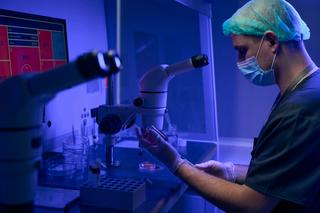What is Escherichia coli (E. coli)?
Escherichia coli, often abbreviated as E. coli, is a bacterium that naturally occurs in the intestinal flora of humans and animals. Most strains are harmless and play an important role in digestion, but some strains can cause serious diseases. These pathogenic strains can lead to infections in the gastrointestinal tract, urinary tract, or bloodstream and have become one of the most common causes of foodborne illness and infections globally. Multidrug-resistant strains, which are resistant to several antibiotics, pose a particular risk.
How does Escherichia coli spread?
E. coli spreads primarily through contaminated food or water, as well as direct or indirect contact with infected people or animals. The most common transmission route is fecal-oral, where bacteria from feces are transferred to the mouth, often through poor hand hygiene or improperly cooked food. Foods such as undercooked meat, unpasteurized dairy products, and raw vegetables washed in contaminated water are common sources of infection.
Symptoms of an E. coli Infection
The symptoms of an E. coli infection vary depending on the strain and the part of the body affected. Common symptoms include:
Diarrhea (which may be bloody with certain strains like EHEC)
Abdominal pain and cramps
Fever
Nausea and vomiting
Urinary tract infections (if spread to the urinary tract)
Symptoms of sepsis (if spread to the bloodstream)
How long does it take for symptoms to appear?
The incubation period for an E. coli infection varies depending on the strain and type of infection. For gastrointestinal infections, symptoms can appear within 1 to 10 days after exposure, but typically occur within 3 to 4 days.
Treatment of an E. coli Infection
Most cases are self-limiting and do not require specific treatment. However, exceptions exist, especially for infections causing severe diarrhea, bloodstream infections, or complications such as hemolytic uremic syndrome (HUS). Here are some treatment options:
Fluid Replacement
Since diarrhea can lead to dehydration, it is essential to drink plenty of fluids. In cases of severe dehydration, intravenous fluid administration may be necessary.
Antibiotics
Antibiotics are used only in specific cases, as certain E. coli strains, like EHEC, can worsen the condition if antibiotics are administered. Multidrug-resistant strains require careful resistance testing to identify the appropriate treatment options.
Treatment of Complications
For severe complications such as HUS or sepsis, intensive care with supportive treatments like dialysis or blood transfusions may be required.
Prevention Measures
Preventative actions are critical to reducing the risk of infections. Here are some key measures:
Hygiene
Wash hands thoroughly with soap and water after using the toilet and before preparing food.
Avoid touching your face after handling raw meat.
Safe Cooking Practices
Cook meat to at least 70°C to kill potential bacteria.
Avoid using the same utensils for raw and cooked food without properly cleaning them first.
Food Storage
Store raw meat separately from other foods to prevent cross-contamination.
Keep the refrigerator at the correct temperature (below 5°C).






















